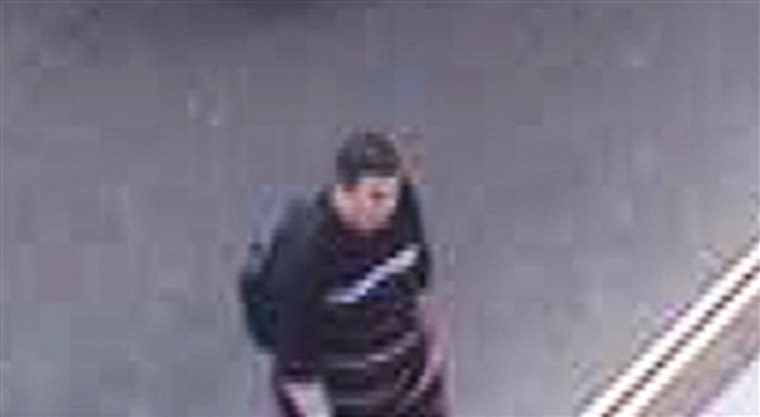Anti-terrorist police on Friday searched an apartment in southwest England to try to determine what motivated a young Muslim convert with a history of mental illness to walk into a busy restaurant with two bombs.
Suspected bomber Nicky Reilly was the only person injured in the blast, but experts and authorities fear he represents a worrying trend: vulnerable and isolated individuals radicalized through the Internet and exploited by militants.
Police forensic teams removed bags full of evidence from the second-floor apartment in Plymouth where Reilly lived with his mother and younger brother. A military bomb-disposal team arrived at the scene as the search continued.
Police later arrested a man in Plymouth in connection with the explosion. A second man also was being questioned but was not under arrest.
Reilly, 22, was in a hospital under armed guard and being treated for facial injuries after a device he was carrying blew up Thursday in a bathroom at Giraffe, a popular family restaurant in Exeter, 180 miles southwest of London and about 40 miles from his home. Another explosive device was found nearby and disarmed by bomb-disposal experts.
Britain's Press Association news agency cited police sources as saying the devices were "viable" and made from sodium hydroxide, kerosene, strips of aluminum foil and nails.
'He was preyed upon'
Police late Thursday took the unusual step of naming Reilly, who has not been charged, and releasing his photo. Devon and Cornwall Police said Reilly had been manipulated, and appealed for help tracking his movements.
"We believe that despite his weak and vulnerable state, he was preyed upon, radicalized and taken advantage of," Deputy Chief Constable Tony Melville told reporters.
Police said the incident did not appear to be part of a wider plot but said the investigation was continuing. London police sent a team of counterterrorism officers to provide support. The British Broadcasting Corp. reported that the country's domestic intelligence service, MI5, also was on the case.
Reilly's neighbors described him as a quiet, isolated man who spent much of his time indoors. A local Muslim leader said he did not know the suspect.
Scott Allen, 19, who lives in the apartment below Reilly's in Plymouth, said the young man was introverted and rarely spoke.
"I would say they picked on him because of his vulnerability," Allen said. "He had always been a follower and had always wanted friends."
Another neighbor, 17-year-old Ali Turner, said Reilly's computer screensaver was an image of the burning World Trade Center in New York. Turner said Reilly has recently changed his name to Mohammed Rasheed, "but English people were still allowed to call him Nicky."
Islamic center offered police protection
Syed Lutfur Rahman, chairman of Plymouth's Islamic Center, said police called to offer the center protection in case of a backlash against local Muslims. They also asked him if he knew Reilly.
"I said I didn't know him. I don't know if he's been to the center," Rahman said. "But I don't recognize him."
Terrorism-related arrests have become frequent in Britain since the Sept. 11 attacks and the July 2005 suicide bombings by four British Muslims that killed 52 commuters in London. Home Secretary Jacqui Smith said last month that authorities were monitoring 2,000 suspects and 30 active plots.
But Exeter — population 120,000, a county known for its beaches and clotted cream — seems an unlikely target. The largely rural southwest is one of England's quietest corners, although animal-rights militants have detonated a series of small bombs in the region over the last quarter century.
On Friday, a 19-year-old Muslim convert from Bristol, also in southwest England, appeared at London's Central Criminal Court, charged with intending to commit a terrorist act using an improvised explosive device.
Police say Andrew Philip Michael Ibrahim, arrested last month, was found with a peroxide-based explosive, along with ball bearings, air gun pellets, nails, screws, circuitry, batteries and electric bulb filaments. He is due to stand trial in January.
Both Ibrahim and Reilly appeared to have been radicalized very quickly, said Garry Hindle, a terrorism expert at the Royal United Services Institute, a military think tank.
"The rapid radicalization is something of concern, the speed with which people can be converted to violent acts," Hindle said. "Police have pointed to this being something that can happen in a matter of weeks.
"It points to the fear that there is a lot of use of the Internet — people can almost become self-radicalized," he said. "If that is what has happened in Bristol or in Exeter, it is very worrying."
